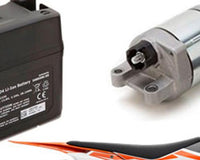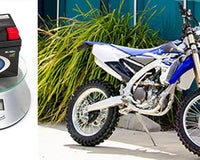Table of Contents
- Neutralize Battery Myths by Understanding Battery Basics
- Myth #1: Charging Your Phone Overnight Will Cause Overcharging and Therefore Damage the Battery
- Myth #2: Closing Battery-Draining Apps Will Prolong Battery Life
- Myth #3: Recharging battery-draining devices when they are at 20% will make them last longer.
- Myth #4: Let Your Battery Drain Before Recharging
- Myth #5: Batteries Don’t Last as Long in Cold Weather and They’re Less Efficient
- Still, Your Battery Will Not Last Forever
Battery myths are everywhere. In fact, it seems as if battery life is a huge question for many people, however, the information they find online is not always accurate. In this blog post, we will discuss 5 battery myths that you should think twice about before doing anything based on them.
Neutralize Battery Myths by Understanding Battery Basics
First of all, it is important to understand some battery basics in order to fully grasp the concepts behind these battery myths. Let’s start with a quick and simple definition: A battery consists of one or more cells (which are like tiny containers filled with chemicals) that produce an electric current.
The battery’s capacity is measured in mAh (milliampere-hour). It tells you how much battery charge can be stored by the cell or battery, and it represents the maximum amount of energy that a fully charged battery can deliver to your device before it runs out of juice. So does this mean we need to drain our batteries completely before recharging them again? Absolutely not!
The battery is designed to be charged and discharged. Just like how we humans can build endurance by eating at regular times, batteries also benefit from having a “food” schedule as well. In fact, you should try to keep your battery between 40% and 80%. If it falls below this battery threshold, battery life will decrease.
If you frequently drain your battery till it’s almost empty and then recharge again, the battery may have a shorter lifespan than expected. The chemical reactions inside batteries can cause permanent damage when drained too low. That's why it is suggested that users plug their phone in to charge before it gets down to 0%.

Myth #1: Charging Your Phone Overnight Will Cause Overcharging and Therefore Damage the Battery
This is one of those battery myths that's been passed around for years, but it isn't true at all! Modern batteries, like Li-Ion, are made to be charged anytime without getting damaged or losing capacity as a consequence – they work best when they are between 40% and 80%. In addition, once the lithium-ion battery hits 100%, it automatically stops charging.
That being said, it is still recommended to charge your battery when you have the chance instead of charging them all night long.

Myth #2: Closing Battery-Draining Apps Will Prolong Battery Life
In iOS devices, there’s a feature that allows you to close battery-draining apps. However, even if it is possible for an iOS user to turn off battery-draining applications at will, turning them back on again does not mean that the battery life has returned to normal. This option was created so users can get rid of unnecessary background processes and free up memory when they need it most.

Myth #3: Recharging battery-draining devices when they are at 20% will make them last longer.
This battery myth is not true either! It has been proven that charging a battery with up to 80% won't harm its lifespan or shorten battery life. And if you do need to recharge your battery when it's still at 20%, you can use battery degradation mode, where your battery will be charged to 50% before stopping. This means that 60% of battery power is left unharmed and untouched during the charging process, which makes this option beneficial for battery health.

Myth #4: Let Your Battery Drain Before Recharging
Batteries are actually more efficient when they're charged halfway between full and empty. The optimum charge percentage is 50% for any lithium-ion battery, which means half of its moveable ions will be in the cobalt oxide layer where it has good shelf life while another 50 percent reside within the graphite layer.

Myth #5: Batteries Don’t Last as Long in Cold Weather and They’re Less Efficient
Batteries don't like heat. In fact, the opposite is true - keeping your battery cool will help it last longer. It's indeed possible that your smartphone might be a little slower in cold temperatures, and it could be because lithium ions move slightly slower. This is due to the battery not being able to provide as much power when exposed to lower temps so you can expect some slowness from time to time. But don't fret, because the temperature change isn't linked with any permanent damage to your battery so there's no need to worry.

Still, Your Battery Will Not Last Forever
Of course, your phone's battery is not made to last a long time even if you take good care of it. A typical smartphone will only work at optimal capacity for 2-3 years before it starts deteriorating and becomes less efficient in performing basic tasks like taking photos or checking email messages without having power disruptions midway through the process.
But there are ways around this issue! You can replace batteries yourself if needed or get them replaced at a service centre. Here at Battery Specialists we offer various batteries for your smartphones and other mobile devices.









